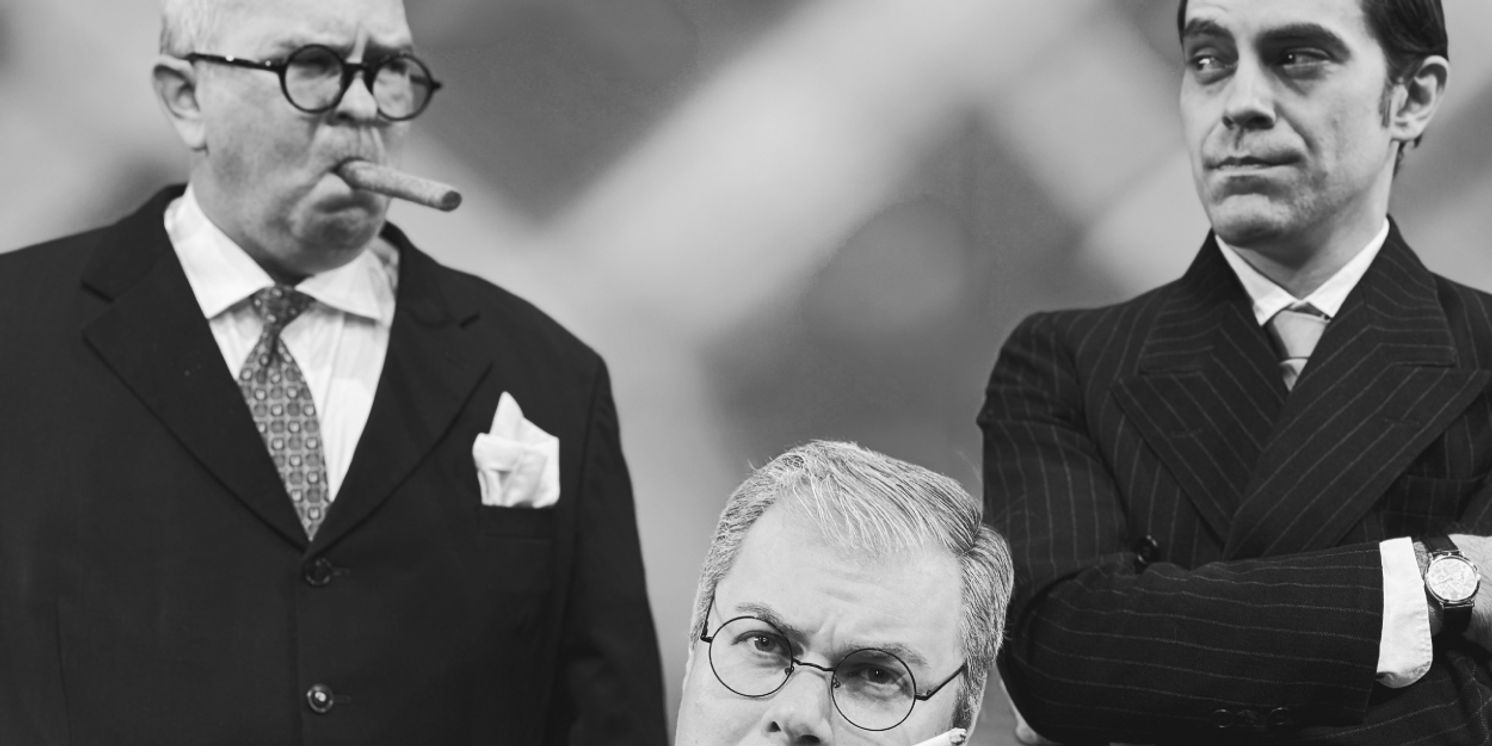Review: THE DRUMS OF WAR at Abbey Theater of Dublin
Brown’s peek behind curtain of history well worth watching.

Sometimes history is created not by political giants but by the small men behind the curtains.
Herb Brown’s play, THE DRUMS OF WAR, tells the story of one such man. Harry Lloyd Hopkins (played by Dayton Willison) plays a key role in forging a strong bond between President Franklin Delano Roosevelt and England’s new Prime Minister Winston Churchill in the summer of 1941.
The show made its world premiere at the Abbey Theater of Dublin (5600 Post Road in Dublin) on Jan. 19 and will run through Jan. 28.
Although history classes rarely mention him, Hopkins (or “Harry the Hop,” as FDR enthusiastically calls him when he makes an entrance on the stage) was an architect of several of the New Deal’s relief programs and then was promoted to Secretary of Commerce from 1938 to 1940.
However, Hopkins resigned after he was told he had four months to live after being diagnosed with stomach cancer.
Hopkins, who had 75 percent of his stomach removed during surgery, seems to be physically revived when he steps into the White House less than two years later. Roosevelt (Scott Douglas Wilson) warmly welcomes him into his residency. Eleanor Roosevelt (Josie Merkle) contends Hopkins’ presence provides a balancing effect on her husband.
Across the pond, Churchill (Matthew Michael Moore) emerges from being an unpopular, pompous politician to the successor of Chamberlin Neville after the latter’s “non-aggression” pack fails to stop German dictator Adolf Hitler. FDR dispatches Hopkins to England to see what help the United States can offer its beleaguered ally.
Churchill pushes Hopkins into getting FDR to offer financial aid to help his country stave off the Nazis. President Roosevelt, who campaigned with the promise the United States would stay out of European affairs, worries aiding England will thrust America into the war. Hopkins composes The Lend-Lease Act, which leases 50 destroyers to England after the country loses 10 similar ships in July, 1941. Five months later, Churchill expresses his support of Roosevelt after the Pearl Harbor attack flings America into the war.
One of the great things about Willison’s performance is his understated understanding of Hopkins’ role. He may be smaller physically and in importance than Churchill and Roosevelt, but he holds his own with the two titans. In the emotional climax of the first act, Churchill raises an eyebrow and asks, “What will you tell him, Harry?”
Hopkins quotes Ruth 1:16, “Where you go I will go, and where you stay I will stay. Your people will be my people and your God my God. Where you die, I will die, and there I will be buried.”
Churchill, who is far more likely to brandish a bottle of brandy than a Bible, is visibly moved. He removes his glasses, his eyes water, and he slowly nods his head. Not a word is spoken, but the two execute the importance of the moment.
As an Ohio Supreme Court justice, Brown knows his history and that’s what is engaging about this play. Most of the events, including that speech, are not a writer’s invention but a reflection of history.
Director Joe Bishara keeps a sharp eye on history as well, projecting images of the actual leaders his actors are portraying. Having seen Moore and Wilson in other shows, it is amazing how much the two transformed into their characters and not just act like them.
As Churchill, Moore exhibits the mannerisms of one of the most colorful characters in history … except his humor. Perhaps no world leader has delivered more zingers than Churchill. Outside of a story about a nude Churchill wandering about the White House, the script lacks the leader’s quirks and barbs.
Wilson captures Roosevelt’s folksy charm without losing his frailty and humanness. Stricken with polio, the President spent most of his life (and spends most of the play) in a wheelchair. In one of his meetings with Churchill, he relies on Hopkin’s support to stay upright. As his wife Eleanor, Merkle provides a perfect counterbalance to the president, keeping him moored to the ground and openly disagreeing with FDR and even bashing Churchill for his treatment of the White House butlers.
Jacob Erney and Sean Taylor provide splendid supporting roles as Anthony Eden and Brendan Bracken respectively. (Eden went on to replace an ailing Churchill in 1955).
As he did with the relationship between John F. Kennedy and J. Edgar Hoover in THE PRICE OF POWER, Brown offers an interesting look at what goes on behind the draperies of power. It is a peek that is well worth watching.
Reader Reviews
Videos

